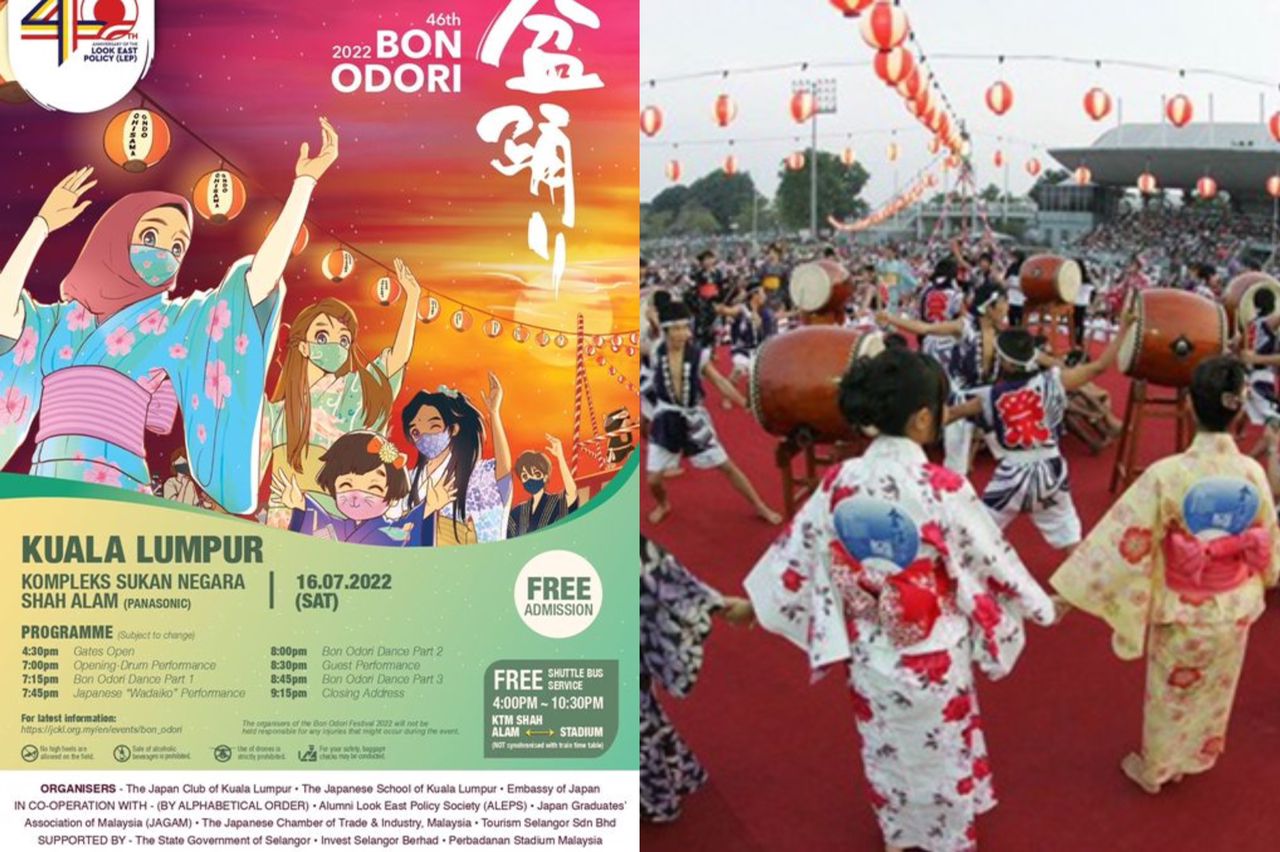IT is very understandable if faithful Muslim leaders were to oppose the staging of the Oktoberfest as how Sungai Besar UMNO division chief Datuk Seri Jamal Md Yunos Jamal Yunos had smashed crates of ‘Tiger beer’ (with faux labels of the Better Beer Festival 2017) at the Selangor state secretariat building’s front gate in October 2017.
But for gentle Japanese ‘dancefest’ like Bon Odori which has been celebrated for more than 30 years in Malaysia to be defined as capable of wreaking havoc on the Muslim faith by leading disciples to syirik (polytheism) practices is nothing short of an “extremist view”.
“Since the festival is linked to remembering the souls or spirits of the ancestors, it is feared that it could lead to polytheism. Muslims must always preserve the purity of their Islamic faith,” advised Penang Mufti Datuk Seri Wan Salim Wan Mohd Noor in a statement.
“Remembering the souls of the ancestors by dancing, worshipping their spirits and others is not encouraged in Islam. In fact, it is feared that they will fall into the sin of polytheism to Allah.”
Wan Salim was echoing an earlier statement by Minister in the Prime Minister’s Department (Religious Affairs) Datuk Idris Ahmad who was reported as saying that the Malaysian Islamic Development Department (JAKIM) has found that the Bon Odori festival contains elements of other religions.
As such, Muslims were advised against participating in the event which would be held at the Shah Alam National Sports Complex on July 16.
Elsewhere the Malaysian Islamic Charity Council (MAIM) which is under Yayasan Dakwah Islamiah Malaysia also denounced popular Japanese summer festival that features singing and dancing to the energetic beat of drums, gongs, and the sweet melody of flutes.
In Malaysia, the festival dates as far back as 1977. It is held to promote and strengthen cultural ties between Malaysia and Japan by showcasing Japanese food, drinks, art, and dance.
MAIM chairperson Muhammad Najhan Shahir Halim said the ban was based on the Quran and hadiths (narrative record of the sayings or customs of Prophet Muhammad and his companions) and five maqasid syariah (objectives or purposes behind the Islamic rulings) principles which, among others, protected religion, life and the mind.
It is unbelievable that our worldview is getting narrower with Malaysia having regressed to the lowest ebb – politically, economically, socially and intellectually – with each passing day.
“These people will destroy our nation through extreme religious views. Not suitable for multi-national and multi-religious countries like us,” decried Malaysian Indian Voice founder Pappa Raidu Veraman.
“What is the point of all the key ministers, including the PM (Prime Minister), fostering business dealings with Japan when we can’t even strengthen our friendship tie via cultural exchange?”
Penang’s Deputy Chief Minister II Ramasamy Palanisamy opined that the Islamic religious authorities need not have to make a mountain out of a molehill.
“Time is better spent on other pressing matters such as combating corruption and other social ills. I am looking forward to the Bon Odori festival in Penang,” he commented cheerfully. “I am sure that my religious credentials as a Hindu would not be diluted or impaired by my participation.”
To cite Shah Alam councillor Muhammad Shakir Amir, PAS has shown its ignorance and lack of understanding on cultural diversity in Malaysia by advising Muslims against joining the upcoming Bon Odori festival next week.
The DAP man said Shah Alam had benefited from strong diplomatic relations with Japanese companies and questioned why the advice for Muslims came only after more than three decades of Bon Odori celebrations in the country without issue.
“We have a sizeable number of Japanese expatriates living here. We even have a Japanese school to cater to the Japanese community,” he pointed out.
“It is only natural that they will celebrate their cultural celebration through their community clubs or associations.”
While the Selangor state government will not in principle cancel the event but is still consulting the state Islamic authorities as well as the Japanese Embassy and researchers to get more information on the festival, Penang is forging ahead with the event scheduled for July 30. – June 8, 2022









